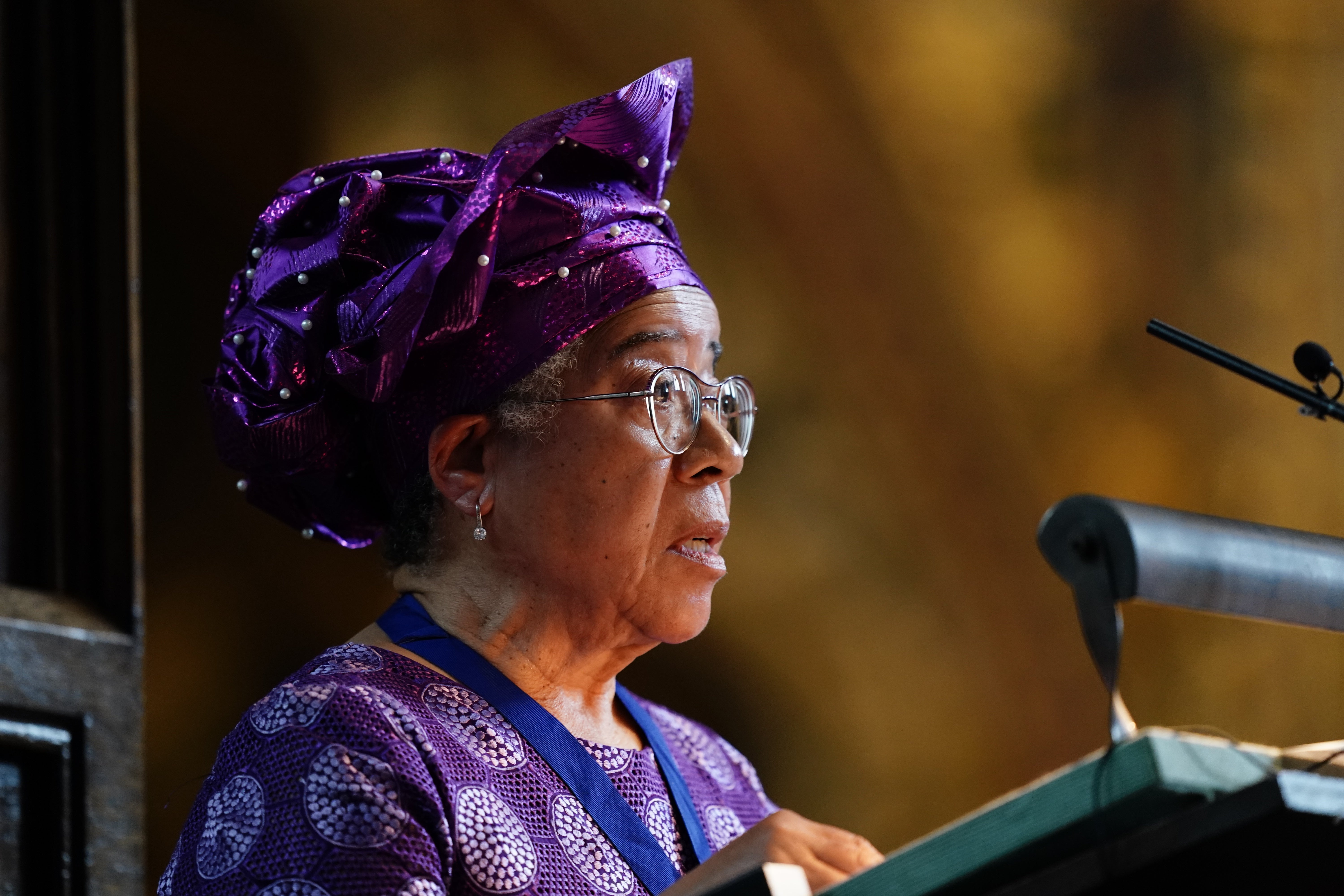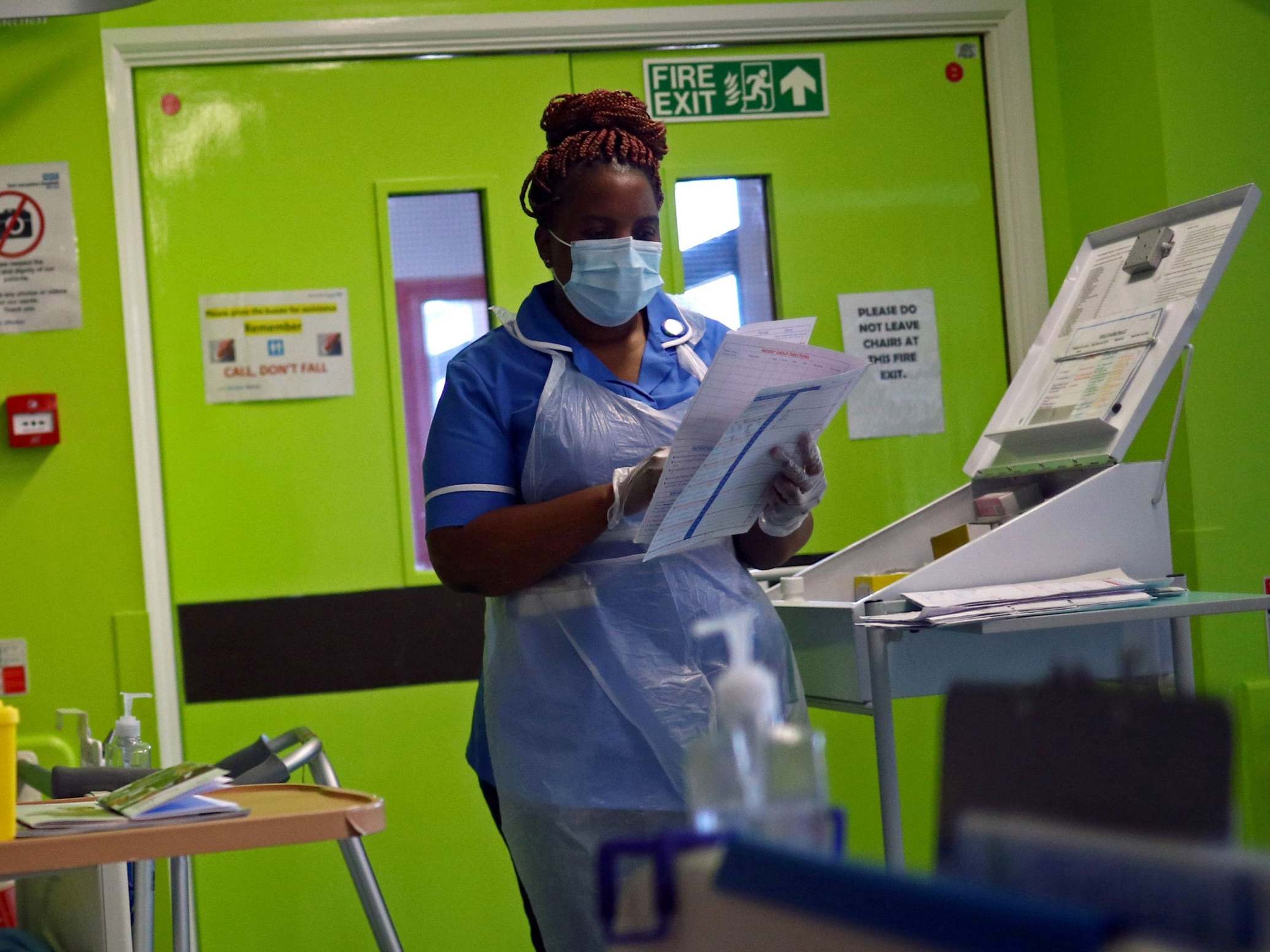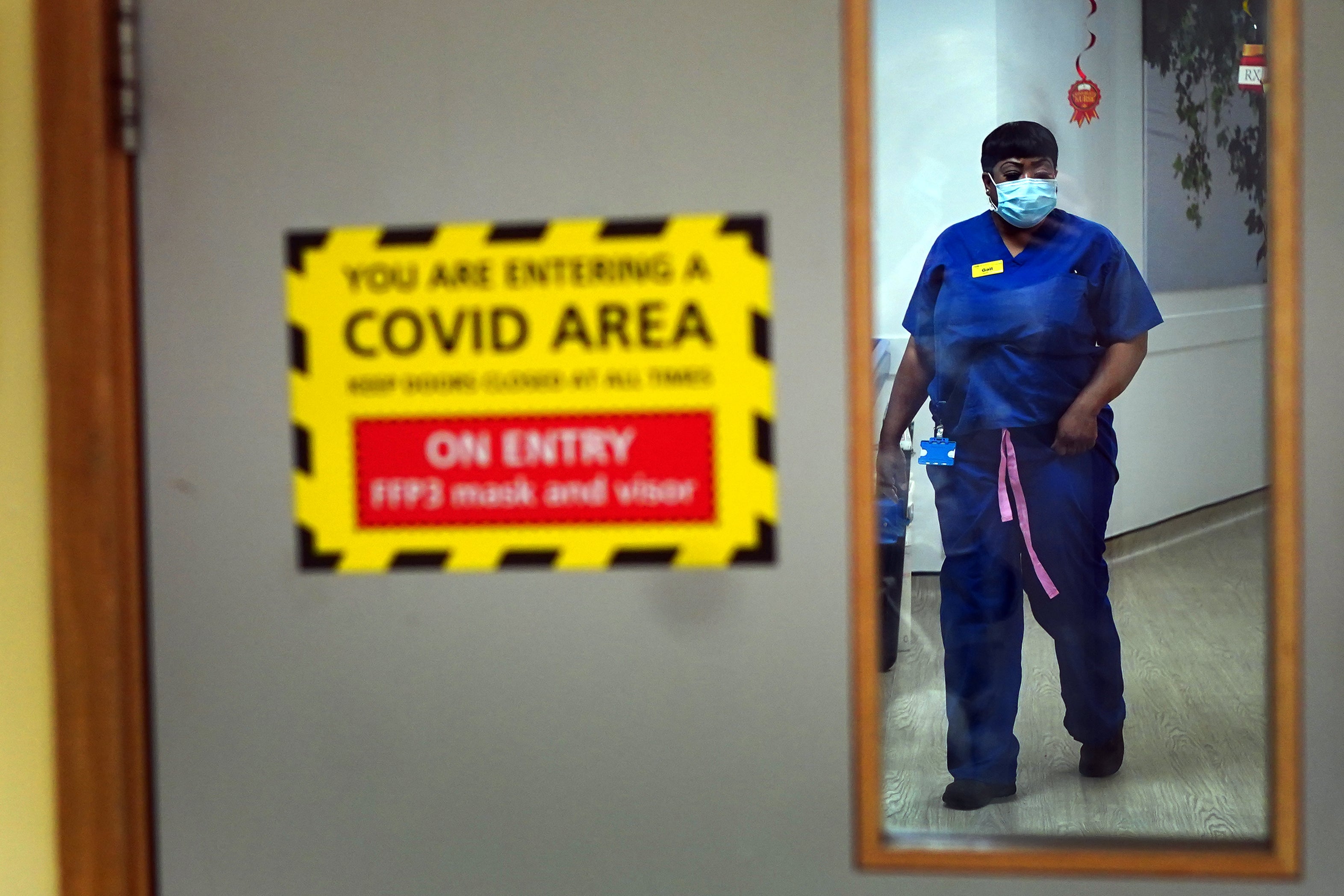Sickle cell pioneer Dame Elizabeth Anionwu honoured at UK’s first Black NHS awards
Exclusive: These awards are the first to focus solely on Black healthcare professionals of the Caribbean or African diaspora for significant contributions to the field

Your support helps us to tell the story
From reproductive rights to climate change to Big Tech, The Independent is on the ground when the story is developing. Whether it's investigating the financials of Elon Musk's pro-Trump PAC or producing our latest documentary, 'The A Word', which shines a light on the American women fighting for reproductive rights, we know how important it is to parse out the facts from the messaging.
At such a critical moment in US history, we need reporters on the ground. Your donation allows us to keep sending journalists to speak to both sides of the story.
The Independent is trusted by Americans across the entire political spectrum. And unlike many other quality news outlets, we choose not to lock Americans out of our reporting and analysis with paywalls. We believe quality journalism should be available to everyone, paid for by those who can afford it.
Your support makes all the difference.A landmark award ceremony celebrating Black NHS healthcare professionals is being launched this week.
A coalition of healthcare professionals and organisations have collaborated to unveil the first-ever Black Healthcare gala taking place on Saturday in central London.
These awards are the first to focus solely on Black healthcare professionals of the Caribbean or African diaspora for significant contributions to the field, according to organisers, the Caribbean African Health Network (CAHN).
Since its 1948 inception, the NHS has always been heavily staffed by Black healthcare professionals.
The workforce is currently the most diverse that it’s ever been with Black and minority ethnic staff making up almost a quarter of employees (24.2 per cent or 383,706 staff).
Dr. Faye Ruddock, Chair of CAHN, told The Independent: “Black healthcare staff have been its backbone and continue to be recruited internationally to enable the NHS to deliver on its vision.

“Indeed, the proportion of health and care workers nationwide who are of Black Caribbean and African descent far outnumbers the percentage of Black people in other professional roles across UK society.
“We want to recognise the considerable accomplishments and contributions of Black professionals – who often operate in challenging environments – and spotlight them for the great work they do across the healthcare sector.”
The award’s patron, Professor Dame Elizabeth Anionwu, the UK’s first specialist sickle cell nurse, will be celebrated on the night and will present an award named after her.
Speaking about the event’s significance, Dame Elizabeth said: “These awards are very important to recognise the hard work and achievements of a significant section of the healthcare workforce.
“Having an award named after me is a bit surreal, quite surprising, but I’m hugely honoured.
“What I’d like to say to all the healthcare organisations involved is ‘thank you very much for all the support you’ve given’ but can you carry on giving that support? Because without it, it’s very disheartening for staff to carry on, providing the healthcare in the way that patients and families require.”

An award has also been named after public health expert Professor Kevin Fenton.
Individuals have been nominated by colleagues who acknowledge the impact of their work and the list of 23 categories includes Pharmacist of the Year, Clinician of the Year, Black Student of the Year, Midwife of the Year, and Lifetime Achievement.
Join our commenting forum
Join thought-provoking conversations, follow other Independent readers and see their replies
Comments